Start the 2015-2016 school year off with excitement! There’s no better way to get students out of the “summer slump” and back on track than with High Touch High Tech!
Looking for ways to fund your next High Touch High Tech workshop? Whether your looking to fund your next exciting elementary programs or upcoming senior science, the grants listed below are a fantastic resource for all educators!
August 2015

|
|
The Gopher Turtle Council’s environmental education grant supports educators and organizations committed to developing educational projects about the gopher tortoise and the world in which it lives. Apply by August 31, 2015. |

|
|
The mission of Hot Planet / Cool Athletes is to ensure the next generation is educated and energized to lead the fight against climate change. Students can apply for the chance to win up to $5,000 to create green programs at their schools. Apply by August 31, 2015. |
|
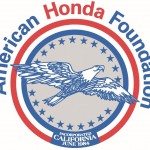 |
Deadline: August 1 to November 1, 2015
The American Honda Foundation engages in grant making that reflects the basic tenets, beliefs and philosophies of Honda companies, which are characterized by the following qualities: imaginative, creative, youthful, forward-thinking, scientific, humanistic and innovative. We support youth education with a specific focus on the STEM (science, technology, engineering and mathematics) subjects in addition to the environment. Applications are accepted four times per year — February 1, May 1, August 1 and November 1.
|
 |
|
Creative and stimulating projects can go a long way in helping students understand material. Our State invites you to submit a classroom project idea to be completed by May 31, 2015 (during the 2014-2015 school year). One project will be selected by the judges to receive up to $500 to bring the project to life.
|
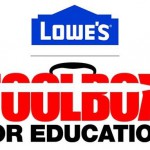 |
Deadline: August 3 to October 16, 2015
The annual Lowe’s Toolbox for Education grant program is a great source of funding for improvement projects at public schools in the U.S. Grant funding falls into three categories, including “technology upgrades, tools for STEM programs, and facility renovations and safety improvements. If you’re looking to beautify your school, or enhance your technology and STEM offerings, this is the program for you.
Prize: Grants can range from $2,000 to $100,000, which a large majority falling in the $2,000 to $5,000 range.
|
|
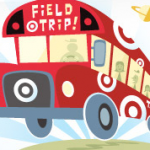 |
Deadline: August 1 to September 30, 2015
Would you like to take your students on a field trip next year, but the challenge is funding is holding you back? Consider applying for a Target grant for class field trips. Each year, Target supports teachers across the country, providing small, one-time grants to help fund the out-of-class learning experiences. Interested grant seekers can apply online and view local learning field trips that have been funded.
Prize: Grants are available up to $700.
|
September 2014

|
|
Deadline: September 28, 2015
Organizations, including schools, non-profits and government agencies, are invited to apply for grants up to $1,500 to develop or implement environmental curricula that integrate hands-on ecology exercises into the classroom. One-page pre-proposals are due September 28, 2014. |
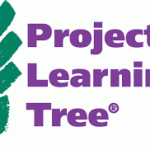
|
|
Deadline: September 30, 2015
Project Learning Tree® (PLT), an award-winning national environmental education program for educators and students in grades PreK-12, has GreenWorks! grants of up to $1,000 available to schools and youth organizations for environmental service-learning projects. Students “learn by doing” through community action projects they design and implement to improve an aspect of their school or neighborhood’s environment. These environmental action projects blend community service with academic curriculum to link classroom learning to the real world. |
|
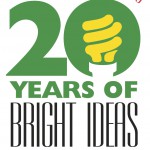 |
Sponsored by North Carolina’s Touchstone Energy® cooperatives, Bright Ideas education grants provide funding for hands-on classroom projects that fall outside normal funding parameters. Each year, about $600,000 is given out to teachers across the state by our state’s electric cooperatives. Applications are accepted from April through mid-September. |

|
|
The Captain Planet Foundation provides grants of up to $2,500. The Foundation supports high-quality, hands-on environmental stewardship projects that have enabled more than 1.1M youth across the U.S. and around the world make significant environmental improvements to their schools or communities. |
Ongoing

|
|
As part of Annie’s commitment to school gardens, the company created the Annie’s Garden Funder on CrowdRise to empower schools and like-minded friends to raise money for school gardens. |

|
|
Schools that receive a honeybee observation hive agree to run an annual fundraiser selling Bee Cause Honey to help pay for the ongoing care of the bee family they have adopted and for the installation of honeybee observation hives at other schools. |

|
|
The Karma for Cara Foundation is encouraging kids 18 and under to apply for funds between $250 and $1,000 to complete service projects in their communities. Whether it is turning a vacant lot into a community garden, rebuilding a school playground or helping senior citizens get their homes ready for winter, they want to hear what project you’re passionate about. Applications accepted on an ongoing basis. |

|
|
North Carolina’s electric cooperatives serve more than 2.5 million people across North Carolina in 93 of the state’s 100 counties. The cooperatives emphasize the importance of community involvement, integrity, accountability and innovation, and as part of that commitment, sponsor Bright Ideas education grants. These grants provide funding for hands-on classroom projects for students in grades K–12 throughout the state. |
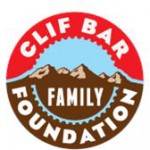 |
Clif Bar Family Foundation Small Grants are awarded for general organizational support or to fund specific projects that protect the Earth, create a healthy food system, increase opportunities for outdoor activity, reduce environmental health hazards, and build stronger communities. The grants, averaging approximately $8,000 each, are awarded four times per year. |

|
|
Community Recycling KIDS [CR KIDS], an environmentally conscious textile recycling program that collects clothing, bags, belts, and shoes you no longer need. These materials will be recycled for reuse around the globe. We are making recycling convenient, fun, rewarding and educational for kids. Community Recycling is founded on the principle that we are People Recycling For People. Won’t you join us in our movement to inspire kids to collect textiles for reuse, creating a lifetime of good choices and a greener nature? |
|
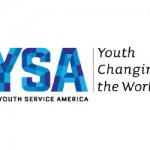 |
Want to make a difference? Take action? Solve a tough community problem? YSA can help! Whether you’re a kid, teen, educator, or adult mentor, YSA Grants power youth-led service and service-learning projects with funding, training, and resource support. |

|
|
The World We Want Foundation promotes and supports youth making positive social change in their communities and around the world. The Foundation works with and through the partner organizations and mentors that applicants provide, helps young people design and conduct meaningful social action projects, provides micro-grants to support projects, and more. |
|
 |
The Gannett Foundation supports local organizations in communities served by the Gannett Company. In North Carolina, this includes the Asheville and Greensboro markets. Priorities include education and neighborhood improvement, youth development, community problem-solving and environmental conservation. Applications considered twice a year: February 15 and August 15 (some areas may have earlier deadlines). |

|
|
Shoe recycling is a simple way for your organization or school to make money. ShoeBox Recycling will pay $.50 per pound for paired, secondhand shoes. No shipping costs! |

|
|
Through its National Giving Program, the Walmart Foundation awards grants of $250,000 and above to non-profit organizations that operate on a national scope through chapters/affiliates in many states around the country or through programs that operate regionally/locally but seek funding to replicate program activities nationally. The Foundation accepts program ideas year-round using the Letter of Inquiry format only. |

|
|
The Cornell Douglas Foundation provides grants to organizations that advocate for environmental health and justice, encourage stewardship of the environment, and further respect for sustainability of resources. The average grant amount is $10,000. Applications accepted year-round. |

|
|
The National Wildlife Federation’s tree bank program provides free trees to schools, youth groups and nonprofit organizations. Apply by January 31 for spring planting dates (February-May 10) and by September 21 for fall planting dates (October-January). |
 |
|
The Environmental Research & Education Foundation accepts proposals for research projects and educational initiatives for developing tools that promote awareness or increase knowledge of the solid waste industry. Awards are generally up to $500,000. Pre-proposals are due by 5 p.m. each May 21 and October 1. |

|
|
The Bank of America offers grants that support high-impact initiatives, organizations and the development of visionary leaders. Schools with farm-to-school programs may be eligible under the areas: (1) assisting with food access and/or (2) developing career leadership and skills. Requests for proposals are issued three times per year. |

|
|
The Bush Fellowship is an opportunity for individuals to increase their capacity for and improve their practice of leadership, while working with others to solve tough problems in their communities. Applications accepted three times per year. |

|
|
Westinghouse provides grants to nonprofit programs that support science, technology, engineering, and mathematics education, environmental sustainability, and community vitality. Grants of up to $5,000 are available for programs located not more than 100 miles from a Westinghouse site. Applications are accepted year-round and reviewed four times per year. |

|
|
Costco Wholesale grants support programs focusing on children, education and health and human services. They look to achieve the greatest impact where Costco’s employees and members live and work. Only 501(c)(3) nonprofit organizations, which meet their giving guidelines and focus areas, are considered. Applications are accepted throughout the year on a rolling basis. |

|
|
The current rate of funding for science proposals in the U.S. is about 20%. The #SciFund Challenge is an experiment – can scientists use crowdfunding to fund their research? It is also a way to get scientists to directly engage with the public. Crowdfunding forces scientists to build public interaction and outreach into their research from day one. |

|
|
Campus Progress works with youth-led community and campus groups on various issues, including the environment. Young people can join an Action Alliance with Campus Progress by applying for an organizing grant of up to $1,500 a year to help with websites, fliers or anything else they might need. Organizing grant applications are accepted year round. |

|
|
FundingFactory is a free program where schools, non-profits, and charities earn points that can be redeemed for cash or products by recycling their empty printer cartridges, cell phones, laptops, and other small electronics. |

|
|
The NiSource Charitable Foundation funds nonprofit organizations focusing on learning and science education, environmental and energy sustainability, community vitality and development, and public safety and human services. Eligible organizations must have a direct impact in a NiSource service area. |

|
|
The Fruit Tree Planting Foundation (FTPF) and Dreyer’s Fruit Bars are planting orchards across the country in a collaborative program called “Communities Take Root,” and your town could be next! They invite your community to apply for this exciting opportunity to grow fresh fruit, beautify neighborhoods, strengthen relationships and build community food security—all through the simple act of planting fruit trees. |

|
|
“Fruit Tree 101” is a program that creates outdoor edible orchard classrooms at public schools of all levels, across the country, to provide generations of students with environmental education opportunities and a source of organic fruit for improved school lunch nutrition. |

|
|
The EarthEcho Water Planet Challenge Grants of $2,000 are available to middle and high school public educators to support service-learning programs that improve the health of the planet. Applications are accepted throughout the year and reviewed three times per year. |

|
|
The Simply Organic 1% fund supports and promotes the growth of organic and sustainable agriculture. One percent of sales on all Simply Organic spices, seasonings, flavors and mixes goes to support organic agriculture — through research, education and grower development. |

|
|
The Jessie Smith Noyes Foundation supports grassroots organizations and movements in the U.S. working to change environmental, social, economic and political conditions to bring about a more just, equitable and sustainable world. Applications are accepted throughout the year. |

|
|
Need some funding for your crazy brilliant idea? The Awesome Foundation awards $1,000 grants every month. It couldn’t be simpler. Deadlines are rolling. |

|
|
Let’s Move Salad Bars to Schools is a grassroots public health effort to engage stakeholders at the local, state and national level to support salad bars in schools. The program’s goal is to fund and award 6,000 salad bars over the next three years. Any K-12 school district participating in the National School Lunch Program is eligible. Applications accepted throughout the year. |

|
|
Pets in the Classroom is an educational grants program to help bring aquarium fish or small pets into PK-8th grade classrooms. You can obtain a grant or coupon for the purchase of new pets, pet environments or pet food and supplies for existing classroom pets. Applications accepted year-round. |

|
|
The International Paper Foundation supports non-profit organizations in communities where its employees live and work. Environmental education is one of the primary areas the Foundation supports. An online application process routes applications to the appropriate local facility for consideration. Contact your local facility for submission deadlines. |

|
|
Public school teachers who register their classroom at the Adopt-a-Classroom website can be adopted by an individual, business or foundation. Once adopted, teachers will receive credit to purchase items that enrich the learning environment, including classroom technology. |

|
|
Mitsubishi Corporation Foundation for the Americas supports projects in biodiversity conservation, sustainable development, environmental justice and environmental education. While proposals are accepted all year, ideal timing is during the first quarter of the calendar year. |

|
|
The Cedar Tree Foundation makes grants in the following areas of concern: environmental education, environmental health and sustainable agriculture. Particular consideration is given to proposals demonstrating strong elements of environmental justice and/or conservation within the program areas listed above. Letters of inquiry accepted year-round. |

|
|
The Lawrence Foundation is a private, family foundation focused on making grants to support environmental, education, human services and other causes. Applications are open to any organization that meets the grant guidelines. Two grant cycles a year. The deadlines are April 30 and November 1. |
-thumb.jpg)
|
|
Through the Sip to Support a Garden program, schools and community gardens can earn year-round funding for their garden programs. Register your school or public community garden group with Jamba’s swipe card program and every time a supporter of your group uses the card at a participating Jamba Juice, your program gets 10% of the sales. |

|
|
Eligible schools may apply for up to $4,000 to help increase awareness of and access to nutrient-rich foods and physical activity opportunities for students. The grants can be used for a variety of activities, tools, materials, student and staff incentives, staff development, and overall Fuel Up to Play 60 program implementation. Applications accepted four times per year. |

|
|
These grants seek to strengthen the stewardship of public lands by strengthening Friends Groups through funding for organizational capacity building. Applications are accepted April 30 and October 30 every year. |

|
|
These grants support health, including food security and improved nutrition; environment, including water security, sustainable agriculture, and adaptive approaches to climate change; and education, including access to education and training for the underserved and women’s empowerment. Requests up to $100,000 are accepted year-round. |

|
|
The Office Depot Foundation awards grants to support activities that serve, teach and inspire children, youth and families, and to support civic organizations and activities that serve community needs. Grants range from $50 to $3,000. Applications are reviewed year-round. |

|
|
The Verizon Foundation awards grants to K-12 schools to increase literacy and educational achievement levels. Proposals are considered from public and private elementary and secondary schools registered with the National Center for Education Statistics. Unsolicited proposals are reviewed on a continuous calendar year basis, from January 1 – October 14. |

|
|
The ING Foundation awards grants of $2,500 to $100,000 and more to non-profit organizations. The Foundation focuses on financial literacy, children’s education, diversity and environmental sustainability. Grant requests are reviewed quarterly. |

|
|
The MeadWestvaco Foundation seeks to provide leadership for advancing research, education and public dialogue on public policy issues of special interest, such as the economy, regulation and environmental stewardship. Proposals for grants are accepted throughout the year. Grants range from $250 to $10,000. |

|
|
WaysToHelp.org invites teens in the U.S. to apply for grants to fund their community service ideas across any one of 16 issue areas, including the environment. Grant requests are reviewed and responded to on a monthly basis. Grants up to $500 are awarded. |

|
|
Recognizing that healthy, thriving communities depend on involved citizens, organizations, and corporate partners for momentum, Waste Management lends its support and services to programs related to environmental education, the environment and the community. Applications accepted year-round. |

|
|
The Norcross Wildlife Foundation supports grassroots organizations in the U.S. working to protect wild land. Grants averaging $5,000 are provided primarily for program-related office and field equipment and public education and outreach materials. The Foundation also provides no-interest loans to acquire land prioritized for conservation. Applications may be submitted at any time. |

|
|
Competitive grants are available to not-for-profit, grassroots organizations in the U.S. that facilitate progressive social change by addressing the underlying conditions of societal and environmental problems. Only proposals from grassroots, constituent-led organizations are considered. Letters of interest may be submitted at any time. |

|
|
Young people ages 18-25 are eligible to apply for grants to pursue research, exploration, and conservation-related projects consistent with National Geographic’s existing grant programs, including the Committee for Research and Exploration, the Expeditions Council, and the Conservation Trust. Applications are accepted throughout the year. |

|
|
Environmental Education Centers may be eligible for a grant from The Institute of Museum and Library Services (IMLS). (Federal Agencies and for-profit institutions are not elegible.) The Institute’s mission is to create strong libraries and museums that connect people to information and ideas. The Institute works at the national level and in coordination with state and local organizations to sustain heritage, culture, and knowledge; enhance learning and innovation; and support professional development. |

|
|
The Fund for Wild Nature provides “small grants to small groups who get things done.” The fund provides money for campaigns (including development of citizen science endeavors) to save and restore native species, biological diversity and wild ecosystems. Most grants awarded in the past ranged from $1,000-$3,000. |
|
 |
The Blue Ridge Parkway Foundation has initiated a small grants program in North Carolina and Virginia as part of its strategic plan to identify and cultivate its constituency, to build value with the supporting public, to create community awareness of the Parkway as an economic and quality of life resource, and to assist the Blue Ridge Parkway with the accomplishment of its goals.
Grants in amounts up to $500 will be awarded upon successful application from private agencies, schools, arts councils, and other not-for-profit organizations whose programs and projects support the mission of the Blue Ridge Parkway. |
 |
Deadline: December 16, 2015
Are you succeeding in science lab instruction with minimal equipment? The Shell Science Lab Challenge gives you an opportunity to share your exemplary approach for a chance to win a school science lab makeover support package valued at $20,000! |
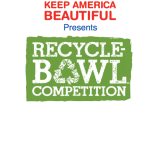 |
Invigorate student participation through a national K-12 recycling competition. |
 |
The AIAA offers classroom grants of up to $200 for science and math programs. K-12 teachers who use science, math, or technology in the classroom can apply. |
 |
Mini-grants are available from the Entomological Foundation for curriculum development efforts or workshops emphasizing the uses of insects in K-12 educational settings.
|
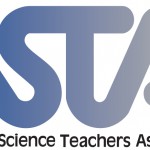 |
The NSTA has more than a dozen grant and recognition programs for teachers.
|
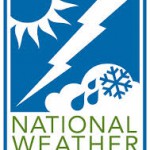 |
Five hundred dollar grants are available annually from the NWA for K-12 teachers who help to improve meteorology education for their students. The selected teachers can use the funds to take an accredited course in atmospheric sciences, attend a relevant workshop or conference, or purchase scientific materials and equipment for the classroom.
|
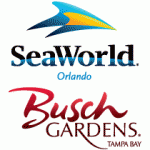 |
Up to $10,000 to student/teacher groups for projects tackling environmental issues. |

















































-thumb.jpg)


















